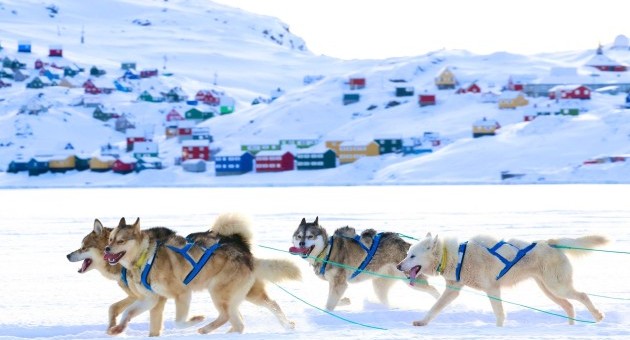Over the weekend of July 17-18, American border officials in Buffalo seized six Inuit marionettes en route to a puppeteer in Rhode Island for repair. The puppets were made in Pelly Bay, a tiny Inuit village in Nunavut, of hair from ringed seal, muskox and barren-ground caribou, wood, and beluga whale bone washed-up on the Pelly Bay shore. Used by elders to teach young about Inuit ways and history, they have great cultural but little financial value.
American officials have forwarded the marionettes to a federal laboratory in Oregon for forensic analysis, and they may press charges against Canadian Inuit. This may be an extraterritorial application of US law that could become a full diplomatic incident.
Welcome to the upside-down world of the US Marine Mammal Protection Act and of good intentions gone awry. The MMPA was introduced in 1972 to protect marine mammals by greatly restricting - essentially banning - trade in products made from them. But the act goes beyond protecting endangered species. The marionettes are made from animals abundant in the North; none is endangered or likely to be. Moreover, they are not being traded. Why, then, this embarrassing diplomatic incident, and why are Inuit in Pelly Bay being harassed? The severity of the MMPA is best illustrated by the ringed seal: Inuit hunters annually take about 50,000 of an estimated 2.5 million in the Canadian Arctic alone. The skins can be made into superb coats, but can't be exported to the United States because all species of seal have become an environmental symbol and political icon to many urban Americans; killing them is bad, saving them is good.
The marionette story is no one-day media wonder. Nor is it an over-reaction by zealous customs officials. Canadian Inuit crossing into the United States frequently have their personal seal-skin clothing impounded. The marionette imbroglio illustrates inequities in a key American environmental statute. The collapse of the seal-skin market in the early 1980s as a result of lobbying by animal-rights organizations caused immense suffering in Inuit communities. Unable to sell animal products and use the cash to buy hunting equipment, many Inuit could no longer live on the land. Yet it is Inuit - travelling the land and passing their values and knowledge from one generation to the next - who guarantee the Arctic will be protected. The MMPA threatens the Inuit culture and way of life and the ability of Inuit to protect the Arctic on behalf of us all. This autumn, Congress has an opportunity to put things right, as it considers re-authorizing and possibly amending the MMPA. Since this statute was adopted, Canada and the United States have signed the Convention on International Trade in Endangered Species, which governs scientifically the sustainable use and international trade of all wildlife and plants for more than 145 nations. No objective person would suggest that implementation of the MMPA is based on credible science or recognized management principles as enshrined in CITES. Indeed, the MMPA violates the General Agreement on Tariffs and Trade and the North American Free Trade Agreement.
Inuit hope that Congress will use the reauthorization debate to bring American law into line with international treaty obligations. Perhaps then Inuit in Pelly Bay will get back their marionettes. Okalik Eegeesiak is President of the Inuit Tapirisat of Canada (www.tapirisat.ca).
 |
Like this article? Don’t forget to share, like or follow us |
 |
NAIA WEEKLY ROUNDUP
FEATURED & LATEST ARTICLES
GET THE NAIA WEEKLY ROUNDUP VIA EMAIL FOR FREE
Stay Connected with The NAIA: Sign Up for The Weekly Roundup
Join our FREE newsletter and community of animal advocates and receive The NAIA Weekly Roundup straight to your inbox. Stay in the loop with the latest news, events, and ways you can make a difference in the lives of animals. Sign up now to stay informed to create positive change!
Sign Up




 Copper Overdose at the Zoo, Owner of Killer Dogs Found Guilty, and More!
Copper Overdose at the Zoo, Owner of Killer Dogs Found Guilty, and More!
 The Great Veterinarian Shortage: Farm Edition, Elephant Rampage, and More!
The Great Veterinarian Shortage: Farm Edition, Elephant Rampage, and More!
 Full House, (More) Dangerous Dogs, and Bugs!
Full House, (More) Dangerous Dogs, and Bugs!
 NAIA at CITES CoP20, Unexpected Animal Interest Alliances, and More!
NAIA at CITES CoP20, Unexpected Animal Interest Alliances, and More!



